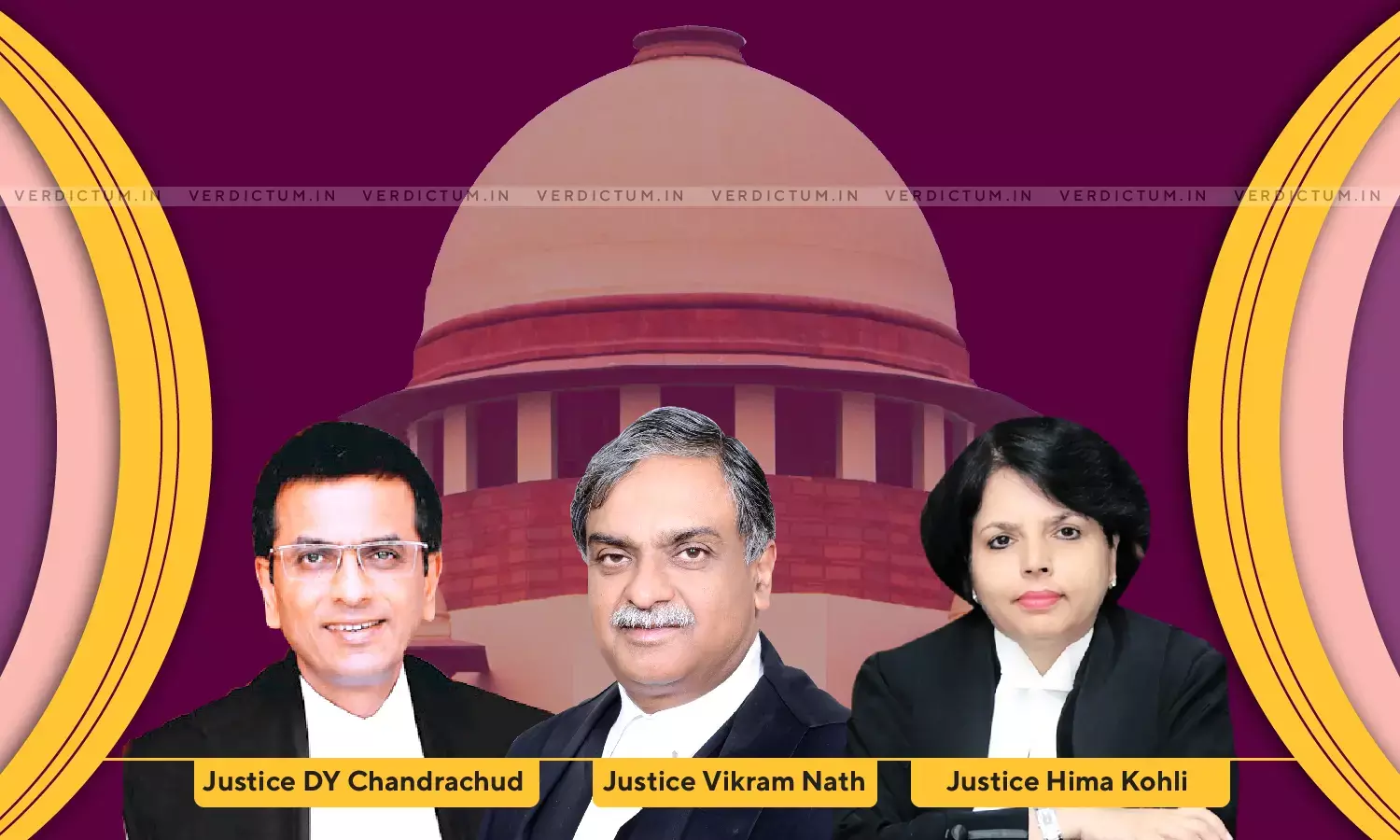Disciplinary Enquiry Is Not Vitiated Merely Because Of The Delay In Conducting It: Supreme Court

A three-judge Bench of Justice Dr. DY Chandrachud, Justice Vikram Nath, and Justice Hima Kohli has held in a judgment of September 6 that every delay in conducting a disciplinary enquiry does not, ipso facto, lead to the enquiry being vitiated.
The Court was hearing an appeal filed against the judgment of Division Bench of Madhya Pradesh High Court which had dismissed the Writ Petition of the Appellants and upheld the findings of the Central Administrative Tribunal (CAT) which had quashed the chargesheet filed against the First Respondent on the grounds – i) There was a delay of nearly two years in conducting the enquiry, ii) The charges were ambiguous, and iii) The High Court had expunged the remarks against the first Respondent in the magisterial enquiry into the custodial death.
In this case, the first Respondent who was a Superintendent of Police had constituted, operated, and supervised the 'Gunda Squad' in spite of receiving instructions from the IGP to disband the same. The squad had arrested an accused who died in custody. This was followed by a magisterial enquiry which contained observations against the first Respondent on his role in illegally constituting the squad.
The Respondent had twice challenged the chargesheet filed against him before the CAT. The Tribunal at first declined to interfere but at the second instance quashed the chargesheet filed against him. The Respondent had contended that since there was a delay in conducting disciplinary enquiry his deputation and promotion were adversely affected.
The Apex Court while considering the chargesheet opined that it was impossible to conclude that the charge against the first Respondent was vague or ambiguous.
"The charge-sheet, together with the statement of imputations, contains a detailed elaboration of the allegations against the first respondent and does not leave the recipient in a measure of doubt or ambiguity over the nature of the case he is required to answer in the disciplinary enquiry. The finding that the charge is vague is palpably in error," the Bench held.
The Court was of the view that the Tribunal instead of quashing the enquiry could have directed for the expeditious conclusion of the same. Therefore, the Court held that the findings of the Tribunal were plainly erroneous.
"Whether prejudice is caused to the officer who is being enquired into is a matter which has to be decided on the basis of the circumstances of each case. Prejudice must be demonstrated to have been caused and cannot be a matter of surmise," the Court observed.
The Court further opined that merely because the Respondent's deputation and promotional avenues were affected, there was no basis on which it could be concluded that his right to defend himself stands prejudicially affected by a delay of two years in conducting the enquiry.
"The High Court, therefore, in our view, has clearly failed to properly exercise the jurisdiction vested in it by simply affirming the judgment of the Tribunal. The judgment of the Tribunal suffered from basic errors which go to the root of the matter and which have been ignored both by the Tribunal as well as by the High Court," the Bench noted.
In the light of these observations, the Court allowed the Appeal and set aside the impugned judgment of the Madhya Pradesh High Court. The Court further allowed the Appellant to conclude the disciplinary enquiry against the Respondent expeditiously by July 31, 2022, with a direction to pay the Respondent his retiral dues including gratuity within two months.

